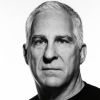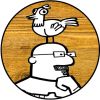7 Cuba History Books That Experts Trust and Recommend
Insights from Jesse Singal, Jimmy Carter, John Sipher, and others on Cuba History Books




What if the story of Cuba you've heard is only part of the picture? Cuba's history is woven with threads of revolution, diplomacy, and human struggle that often defy simple narratives. Understanding this island nation requires more than surface knowledge—it demands a journey through decades of complex relations and pivotal events shaping the Caribbean and beyond.
Experts like Jesse Singal, a cultural commentator and former New York Magazine editor, discovered Ada Ferrer's "Cuba" as a revelation that reshapes views on Cuban-American ties. Jimmy Carter, former U.S. President, provides firsthand insight into diplomatic back channels with Cuba, highlighting the delicate art of negotiation. Former CIA officer John Sipher praises detailed accounts of Cold War brinkmanship, offering clarity on one of history’s tensest moments. Their endorsements underscore the richness and credibility found in these carefully chosen works.
While these expert-curated books provide proven frameworks and deep historical analysis, readers seeking tailored insights into specific eras, political movements, or diplomatic nuances in Cuban history might consider creating a personalized Cuba History book. This option builds on these foundations, crafting a learning experience shaped exactly to your interests and goals.
Recommended by Jesse Singal
Author and former New York Magazine editor
“This book is truly fantastic” (from X)
by Ada Ferrer··You?
by Ada Ferrer··You?
Ada Ferrer challenges the conventional wisdom that Cuban history is just a backdrop to Cold War narratives by weaving a nuanced story spanning over five centuries. Drawing on her extensive research and personal travels to the island, she reveals the complex, often symbiotic relationship between Cuba and the United States, exploring themes from colonization and slavery to revolution and diplomacy. You’ll gain detailed insights into pivotal moments like the Cold War stand-off and the Castro era, as well as the shifting political landscape under multiple U.S. administrations. This book suits anyone eager to understand Cuba’s own identity alongside its ties to America, though those seeking purely political or economic analysis might find it less focused on those angles.
Recommended by Jimmy Carter
Former President of the United States
“LeoGrande and Kornbluh have analyzed thoroughly the history of dialogue between two countries locked in a contradictory relationship for five decades, with each side skeptical that the other truly wanted improved relations. With continual change in Washington, and continuity in Cuban leadership, the authors draw important lessons from the efforts of every administration since Eisenhower to negotiate with Cuba.” (from Amazon)
by William M. LeoGrande, Peter Kornbluh··You?
by William M. LeoGrande, Peter Kornbluh··You?
The authoritative expertise of William M. LeoGrande and Peter Kornbluh drives this revealing exploration of U.S.-Cuban relations, uncovering a lesser-known history of secret negotiations that challenge the narrative of unending hostility. Through extensive research of declassified documents and interviews with key policymakers including Fidel Castro and Jimmy Carter, you gain insight into decades of diplomatic efforts from the Eisenhower era through Obama’s administration. The book details critical episodes such as Kissinger's covert normalization attempts and JFK’s post-missile crisis olive branch, offering you a nuanced understanding of diplomacy’s complexities behind the scenes. If you want to grasp the intricate political dance shaping Cuba's modern history, this detailed chronicle will deepen your perspective unlike any standard history text.
This tailored book explores Cuba’s rich and complex history with a keen focus on your personal interests and background. It examines the island’s revolutionary movements, diplomatic relations, and key historical events that have shaped its unique place in global affairs. By matching your expertise and goals, it reveals nuanced perspectives on Cuba’s political evolution and diplomatic strategies, offering a deeply engaging learning experience. This personalized approach allows you to focus on the aspects of Cuban history and diplomacy that resonate most with you, connecting broad historical narratives with your specific questions and curiosities.
Recommended by John Sipher
Former CIA Clandestine Service officer
“@michaeldobbs Great book” (from X)
by Michael Dobbs··You?
Michael Dobbs, drawing on his extensive experience as a Washington Post foreign correspondent, offers a detailed hour-by-hour chronicle of the Cuban missile crisis that reveals how close the world came to nuclear war. You gain access to new insights drawn from American, Soviet, and Cuban sources, including Khrushchev’s secret plans and CIA operations inside Cuba. The book immerses you in the tense decision-making of Kennedy, Khrushchev, and Castro, providing a nuanced understanding of Cold War politics and crisis diplomacy. If you want a vivid reconstruction of this pivotal moment and the personalities involved, this book equips you with a clearer grasp of the stakes and strategies at play.
by Aviva Chomsky··You?
by Aviva Chomsky··You?
When Aviva Chomsky first approached the history of the Cuban Revolution, her goal was to balance political and social analysis with economic context in a way that few histories manage. You’ll find a detailed examination of the revolution’s trajectory over more than five decades, including new insights on Cuba under Raul Castro in the latest edition. Chomsky challenges prevailing myths by contrasting U.S. and Cuban perspectives, helping you understand the complex realities behind one of the twentieth century’s pivotal events. This book suits anyone looking to grasp Cuba’s revolutionary past beyond simple narratives, especially students and scholars interested in social justice and political history.
by Max Hastings··You?
by Max Hastings··You?
Max Hastings challenges the conventional wisdom that the Cuban Missile Crisis was merely a political standoff by focusing on the human dimension behind the headlines. Drawing on detailed research, he explores the perspectives and decisions of Kennedy, Khrushchev, and Castro, revealing the tension and fear experienced by officials and civilians alike. Through vivid narrative, you gain insight into the complex diplomacy, miscommunications, and personal stakes during those thirteen days in 1962. Chapters alternate between Moscow, Washington, and Havana, offering a panoramic view that deepens your understanding of Cold War brinkmanship and its enduring impact. This book suits anyone seeking a nuanced, people-centered account rather than a dry strategic analysis.
by TailoredRead AI·
by TailoredRead AI·
This tailored book offers a focused 30-day journey through critical moments and themes in Cuba's history, designed to match your background and learning goals. It explores pivotal events from the island's colonial past to revolutionary transformations and diplomatic milestones, providing clear, engaging explanations that connect complex historical narratives with your interests. By tailoring content specifically to your desired topics and knowledge level, it ensures an efficient yet deep understanding of Cuba's evolving political and social landscape. This personalized approach helps you grasp essential historical insights quickly, enabling you to appreciate Cuba's role in global affairs without wading through unrelated material.
by Hourly History··You?
by Hourly History··You?
Hourly History offers a succinct yet detailed account of the Cuban Missile Crisis, drawing from decades of Cold War tensions to explain how the world teetered on the edge of nuclear war. You’ll explore key moments like Khrushchev’s secret missile deployment in Cuba and Kennedy’s tense decision to impose a blockade, gaining insight into the strategic calculations behind each move. The book breaks down complex diplomatic and military maneuvers into digestible chapters, making it accessible whether you’re new to Cold War history or seeking a refresher on this pivotal event. If you want a focused narrative that clarifies the crisis without overwhelming detail, this book serves that purpose well.
by David E. Hoffman··You?
David E. Hoffman's decades of journalism, including his Pulitzer Prize-winning Cold War reporting, shape this detailed biography of Oswaldo Payá, a Cuban dissident who challenged Castro's regime. You gain insight into Cuba’s political repression through Payá’s life—from his youth protesting Soviet oppression to orchestrating the Varela Project petition demanding fundamental freedoms. This narrative reveals the risks and hopes of opposition under authoritarian rule, illustrating how faith and persistence fueled Payá’s activism. If you seek a nuanced understanding of Cuba’s struggle for democracy and the personal costs involved, this book offers a profound perspective.
Get Your Personal Cuba History Guide Fast ✨
Stop sifting through generic histories. Get tailored insights in minutes for your unique Cuba interests.
Trusted by historians and policy experts worldwide
Conclusion
Across these seven books, a few clear themes emerge: the intricate relationship between Cuba and the United States, the human stories behind geopolitical events, and the enduring spirit of revolution and resistance. Each book offers a unique lens, whether it's the sweeping historical narrative of Ada Ferrer, the behind-the-scenes diplomacy explored by LeoGrande and Kornbluh, or the gripping personal accounts of Cuban dissidents.
If you’re grappling with understanding Cuba’s political evolution, start with "A History of the Cuban Revolution" paired with "Give Me Liberty" for a balanced view of systemic change and personal courage. For rapid immersion into Cold War drama, combine "One Minute to Midnight" with "The Abyss" to grasp both strategy and human tension. These books, collectively, can accelerate your learning journey with depth and nuance.
Alternatively, you can create a personalized Cuba History book to bridge the gap between general principles and your specific situation. These books can help you accelerate your understanding and gain confidence in navigating Cuba’s rich and complex history.
Frequently Asked Questions
I'm overwhelmed by choice – which book should I start with?
Start with "Cuba" by Ada Ferrer for a broad yet detailed view of Cuba’s history and its ties to the U.S. It sets a strong foundation before diving into more specialized topics.
Are these books too advanced for someone new to Cuba History?
Not at all. Titles like "The Cuban Missile Crisis" by Hourly History offer accessible entry points, while others provide deeper analysis as you grow more comfortable.
What's the best order to read these books?
Begin with broad histories like "Cuba" and "A History of the Cuban Revolution," then explore diplomatic nuances in "Back Channel to Cuba," followed by crisis-focused works like "One Minute to Midnight." Finish with personal stories such as "Give Me Liberty."
Should I start with the newest book or a classic?
A mix works best. Ada Ferrer’s recent "Cuba" offers fresh perspectives, while classic accounts like "The Abyss" provide timeless insights into pivotal events.
Do I really need to read all of these, or can I just pick one?
Choosing one can give you a solid overview, but combining books provides richer context. For example, pairing historical narratives with diplomatic analyses deepens understanding.
Can I get a book tailored to my specific interests in Cuba History?
Yes! While expert books offer valuable insights, personalized Cuba History books tailor content to your unique interests and goals, bridging expert knowledge with your needs. Learn more here.
📚 Love this book list?
Help fellow book lovers discover great books, share this curated list with others!
Related Articles You May Like
Explore more curated book recommendations






